ore than 72 hours on from the two devastating earthquakes that hit the southeastern region of Turkey and bordering Syria, more than 15,000 people are reported to have lost their lives and more than 34,000 have been left injured as the crisis continues to develop.
What You Can Do To Help The People Of Turkey And Syria
In the wake of two devastating earthquakes and 100's of aftershocks find out what you can do to aid the people at the epicentre of this developing crisis
By Hannah Connolly
The latest comes from Reuters reporters on the ground three days on from when the first 7.8 magnitude earthquake hit in the early hours of the morning on Monday 6th of February. The first, classified as ‘major’ in scale, was followed by a second 7.6 magnitude quake. Since then the region has been hit by more than 200 aftershocks of magnitude 4 and greater.
What is happening in Syria?
In Syria, areas most affected are split between government-controlled territory as well as the country's last opposition-held land, which is encircled by Russian-backed government forces. The earthquake comes during a nearly 12 year long civil war.
What is happening in Turkey?
On Tuesday, Turkish President Recep Tayyip Erdoğan declared a three month state of emergency across ten provinces in the southeast of the country.
The first earthquake to hit Turkey is the strongest on record since 1999 when a 7.6 magnitude struck close to Istanbul killing 17,000 people and injuring 40,000. Geographically, the Turkish/Syrian border lies in one of the world's most active earthquake zones.
On the ground, as detailed by multiple news outlets and videos shared online, many people have spent a third night sleeping outside or in cars due to their homes being destroyed or deemed too unsafe to reenter leaving thousands homeless and without shelter.
A situation only further complicated by freezing temperatures which have hit lows of -5 degrees Celsius, as well as cold rain storms passing through the cities close to the epicenter in the days afterwards.
Watch the full video here and read on to disocver how you can support Konusmamiz Gerek below.
Why has this earthquake been so deadly?
The first earthquake was huge, registering at 7.8 magnitude and classified by officials as being ‘major’ in scale. The magnitude, the depth, proximity to inhabited areas, soil condition and building infrastructure, plus the likelihood of subsequent tsunamis and landslides, all play a part in determining how destructive an earthquake will be.
The Turkish-Syrian earthquake broke along a huge 62 mile fault line, and caused immediate destruction to infrastructure. Tremors were felt by millions of people, some of which were more than 1,000km away.
The time of day that the earthquake struck is also a contributing factor in the devastation as most people were either asleep or inside at the time causing many to become trapped in collapsed buildings and rubble.
The current weather conditions in the region have also complicated rescue efforts as well as the safety of survivors. “Because of the cold rain and snow on the ground, we soon started filtering inside, but then there was another major aftershock. This is a dilemma many people have been in… We cannot stay outside all day but it is not safe indoors,” said one survivor to The Guardian.
Adding: “Around 8am, I managed to get a taxi, the driver wasn’t charging a fare and in the backseat were his mother and wife, they were just driving round with him all day.”
Here's how you can help
Konusmamiz Gerek
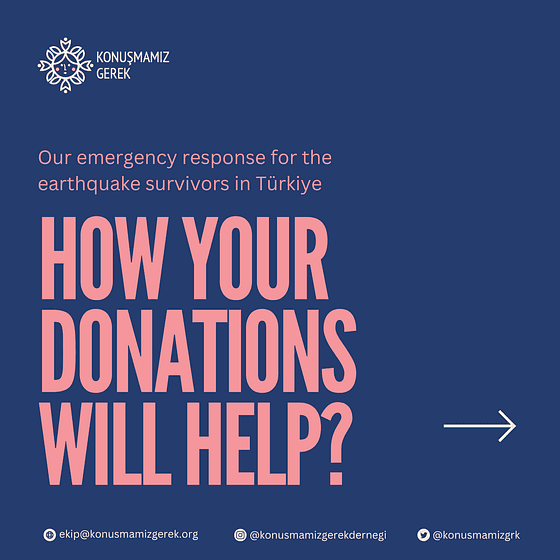
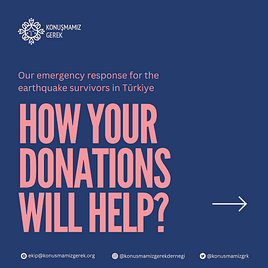
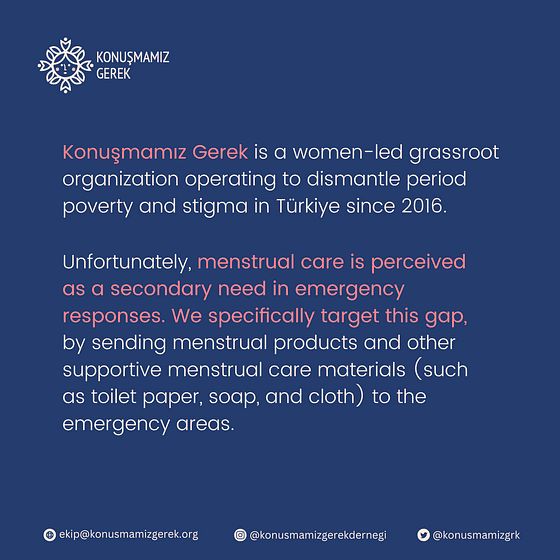
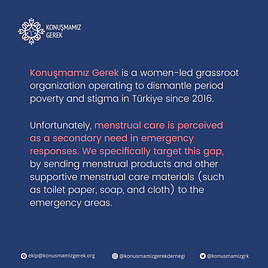
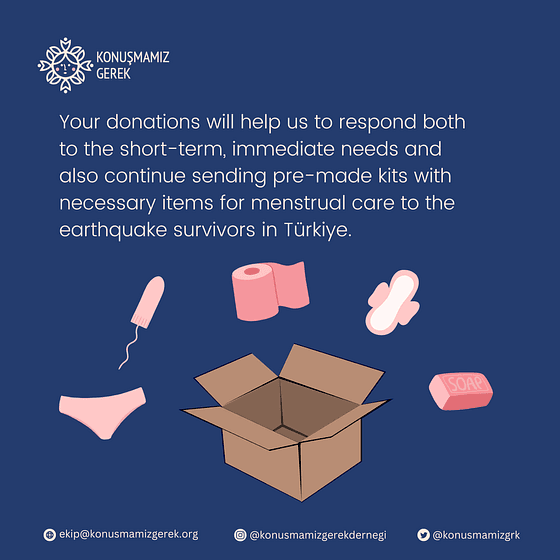
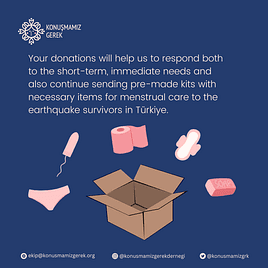
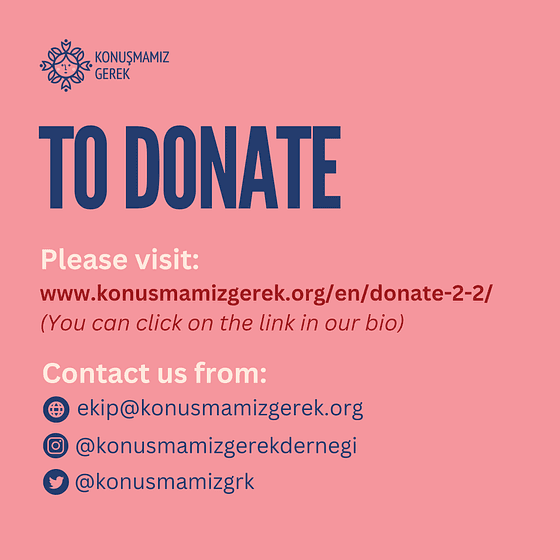
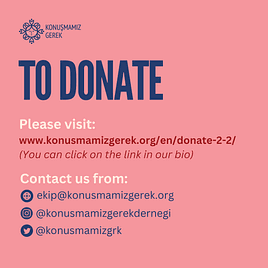
Konusmamiz Gerek is a women-led grassroot organisation operating to dismantle period poverty and stigma in Turkey and has been working on the ground since 2016.
“Unfortunately, menstrual care has been perceived as a secondary need in emergency responses. We specifically target this gap,” says the group. Working to send menstrual products and other menstrual care materials directly to emergency areas.
Operating on a donation basis will help Konusmamiz Gerek respond initially in the short term, addressing immediate needs and then continuing to send pre-made kits with menstrual care items to the survivors of the earthquake. Identifying that needs will only continue to grow after the first few weeks.
AKUT
AKUT is a voluntary, non-governmental organisation involved in the searching, assisting and rescuing of all who require aid due to nature related accidents and natural disasters. The NGO was first established in the wake of the Adana-Ceyhan earthquake, and grew in numbers following the 1999 earthquake. They are fully transparent with how donations are spent.
Donate here. (please note donations are in EUR and USD).
Union of Medical Care and Relief Organisations (UOSSM)
The Union of Medical Care and Relief Organisations provides impartial life saving services to over a million people through its emergency medical response, healthcare services and other programs throughout Syria and beyond. Providing care to the most vulnerable including women and children as well as those residing in difficult to reach areas since 2012.
The UOSSM has put out an emergency call to action from the international community to release emergency funds and to provide resources immediately.
Other charities/NGOs to consider:
The Short Stack
In the wake of two devastating earthquakes and 100's of aftershocks find out what you can do to aid the people at the epicentre of this developing crisis
By Hannah Connolly
"Motherhood is a revelation in itself and there’s a bravery that comes with being a mum" - The New Working Mother Navigating Life With Another Baby To Juggle
The Stack speaks exclusively with Greek designer Mary Katrantzou on her new Lipsy London collection, welcoming indecision, and unlocking a new sense of bravery since becoming a mother.
Power Shift: Who Holds The Power Now That The Taliban Have Taken Over Afghanistan?
In 2012, Dr Torfeh was appointed as the UN Director of the Strategic Communication and Spokespersons Unit in Afghanistan. Here she shares her expertise with The Stack on the power shifts she thinks will occur there following the West’s recent withdrawal.
